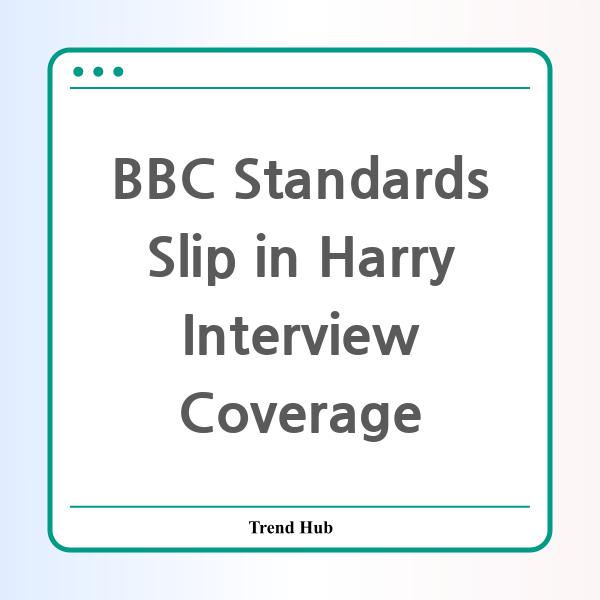* This website participates in the Amazon Affiliate Program and earns from qualifying purchases.

Has the BBC compromised its editorial integrity over the Prince Harry interview?
As one of the most respected news outlets in the world, the BBC has long been regarded as a bastion of high journalistic standards. However, a recent incident involving its coverage of Prince Harry's interview has raised serious questions about the integrity of its reporting. In the wake of the controversy surrounding Harry's comments on his legal battle regarding personal security, the BBC has openly acknowledged a lapse in their editorial standards.
In a recent airing of the Radio 4's Today programme, the coverage surrounding Prince Harry’s claims of an "establishment stitch-up" regarding his search for safety in the UK left much to be desired. The interview, which took place after the Duke of Sussex lost a crucial court battle, did not include vital responses from the Home Office or Buckingham Palace regarding the claims made by Harry. This exclusion has prompted the BBC to issue a public apology for not meeting its own high editorial standards.
Why does this matter? The failure to include counterarguments from credible sources not only skews public perception but also damages the BBC's reputation. The allegations made by Prince Harry during his interview were significant. He characterized the legal outcomes surrounding his request for security as a manipulation of power by the establishment. By not providing a platform for the Home Office and Buckingham Palace to respond, the BBC inadvertently fostered a narrative that may not present the full picture.
In their acknowledgment, the BBC stated that during the broadcast, the programme only amplified Harry's views without adequately challenging them or presenting other perspectives. According to the BBC’s clarification, this was considered a serious oversight, as the broadcaster should have provided a fair representation of the situation by including the Home Office's detailed statement. The government insisted that their protective protocols are both "rigorous and proportionate," which is an essential point of view that should have been reported effectively.
Additionally, Buckingham Palace affirmed that these issues have been scrutinized repeatedly by the courts. Thus, the failure to include these voices creates an imbalance in the reporting, leading to misleading narratives which may unduly influence public opinion.
Critics have pointed out that the BBC's role as a public broadcaster comes with the responsibility to uphold transparency and fairness in its reporting. Any lapse in this duty raises concerns about the potential for bias. Richard Aitch, a former close protection officer, echoed these sentiments and emphasized that risk assessments should drive security decisions rather than legal arguments. His insights during the interview were compelling yet aligned closely with the views presented by Prince Harry, further highlighting the lack of diverse perspectives during the programme.
This controversy has ignited discussions about editorial practices within the BBC and the larger implications for public trust in media. When such oversights occur, it is not merely an embarrassment for the institution but a breach in the trust that audiences place in its reporting. Users now question what else may be omitted or misrepresented in future broadcasts.
The incident serves as a vital lesson for media organizations: transparency, balance, and rigorous fact-checking are essential components of responsible journalism. As the BBC navigates this rocky terrain, it must strive to restore confidence in its editorial processes and recommit itself to upholding its reputation as a leader in the field of broadcasting.
As consumers of news, it is crucial for us to remain vigilant, ask questions, and hold media organizations accountable when they falter. The integrity of media is a reflection of the society we live in, and ensuring high standards is not just the responsibility of the outlets but also of the public who consumes their content.
* This website participates in the Amazon Affiliate Program and earns from qualifying purchases.